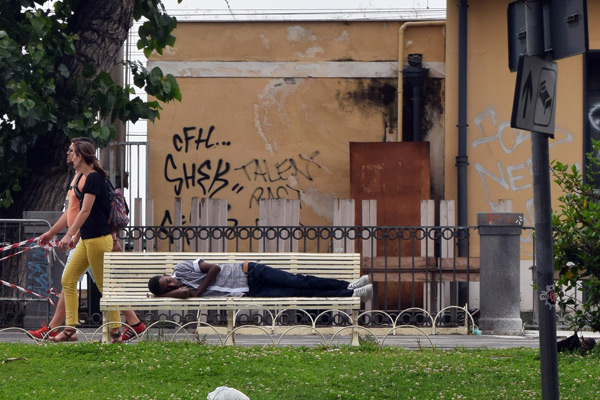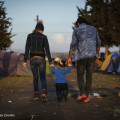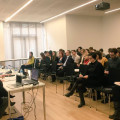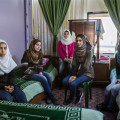Bringing the voices of the refugees to Brussels: the work of the Jesuit Refugee Service Europe

A young migrant sleeps on a bench outside the railway station in Catania, Sicily. JRS Italy known locally as Centro Astalli provides services to asylum seekers in Catania on a daily basis. Credit: JRS Europe/ Oscar Spooner
Since 1980 the Jesuit Refugee Service (JRS) has worked on the dual commitment of providing relief to refugees all over the world and advocating for the improvement of their conditions. Working with more than 50 national divisions and 10 regional offices worldwide, the JRS represents one of the most widely spread and active confessional players in the field of asylum.
Asylum Corner spoke to Oscar Spooner, communication officer for JRS Europe, to understand better the kind of research and advocacy material the European Office has been working on over the last few years. Research plays a major role in the work of the JRS, for the reports issued represent the basis for their advocacy action. As Oscar explains, “the regional offices work as coordinators of the national centers that exist in the region – which mostly provide practical relief services – and constitute the regional advocacy hubs of JRS”.
The national centers indeed represent a great resource for the regional office, since the latter can use the first-hand material coming from the local chapters to pursue their research. Mr. Spooner underlines how precious it is to have contacts with well-established realities working in the field and how the methodology employed in most research is strongly based on one-to-one interviews to asylum seekers and refugees: “We want to bring the voices of the refugees themselves to Brussels”.
From a perspective of contents, the JRS Europe lately has been working on four main research areas:
- Migrants’ detention, with a focus on the vulnerabilities that migrants develop during their detention period;
- Dublin Regulation, in particular examining the way such regulation can represent an obstacle to the provision of proper protection to asylum seekers;
- Access to protection. In this section, the JRS Europe analyses the restrictiveness of EU policies on borders, in the attempt to “show the suffering this is causing and advocate for changes”. The JRS is also member of FRONTEX’s Consultative Forum on Fundamental Rights.
- Destitution, which represents a harsh reality for many migrants once they reach Europe. JRS Europe researches and advocates to get asylum seekers and refugees out of an isolation that is not only detrimental for them but also for the European societies.
Currently, the JRS Europe is focusing on pushing the European Institutions to create safe and legal channels for migrants to reach Europe since, according to them, this is the main way to fight against the smugglers. The set of policy recommendations addressing the EU have been explained at length in a toolbox the JRS published a few months ago.




